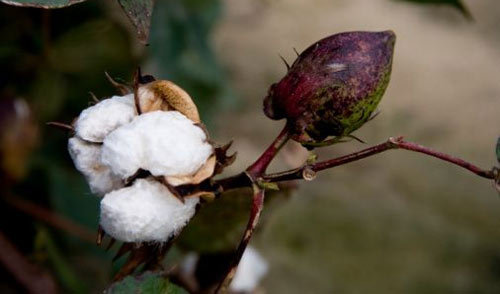By
Reuters
Reuters
Published
Jul 22, 2009
Jul 22, 2009
Changed market makes WTO cotton deal harder
By
Reuters
Reuters
Published
Jul 22, 2009
Jul 22, 2009
WASHINGTON (Reuters) - A sharp fall in U.S. cotton exports is making chances of a world trade deal to cut U.S. cotton subsidies more difficult without new market access opportunities to replace lost revenue.
 |
"An effective response to what is going on in China and India must be found," Mark Lange, president of the National Cotton Council, said on Monday 20 July during a discussion of demands made by West African countries for deep cuts in U.S. farm subsidies, which run about $3 billion per year.
Government subsidies and import barriers in India and China have caused their production to rise, while market forces have pushed U.S. cotton output and exports to their lowest level in years, Lange said.
The so-called C4 countries -- Benin, Burkina Faso, Mali and Chad -- have long complained that generous U.S. cotton subsidies depress world prices and rob the poor West African producers of potential export sales.
Responding to those concerns, World Trade Organization members, including the United States, pledged to cut cotton subsidies deeper and faster than other crop subsidies as part of a hoped for deal in the Doha round of talks.
But that broader agreement has remained elusive in the long-running negotiations, originally scheduled for conclusion by January 2005. The Group of Eight leading rich nations recently joined five major developing countries in setting a new goal to finish by end of 2010.
FALLING U.S. OUTPUT, EXPORTS
U.S. cotton production has fallen from a peak of 5.2 million metric tons in the 2005/06 crop year to about 2.8 million in 2008/09, a drop of 46 percent.
U.S. cotton exports dropped nearly 25 percent over the same period to about 2.9 million tonnes.
Part of decline was due to the global financial crisis, which caused a 10-percent drop in world cotton consumption last year, the biggest year-to-year fall since the Great Depression year of 1937.
But higher prices for corn and soybeans also lured many U.S. cotton producers to switch production.
U.S. government officials say that shows U.S. farmers respond to market signals, rather than government subsidies, in making their annual planting decisions.
Meanwhile, India's cotton sector has seen a "remarkable transformation" and now accounts for 24 percent of world production and 19 percent of world exports, said Carol Goodloe, an economist for the U.S. Agriculture Department.
That increased competition has made U.S. cotton farmers more determined India, China and other developing countries be required to open their markets to increased imports in exchange for any cuts in U.S. subsidies.
TALKS IN KENYA WITH KIRK
"There's got to clear-cut success in finding market access or U.S. agriculture will not support the overall package. I think that's the important message," Lange said, arguing that market openings in India and China would help West African cotton exporters as well.
C4 trade ministers expect to discuss the cotton issue with U.S. Trade Representative Ron Kirk in Kenya in early August when the United States holds its annual trade forum with sub-Saharan African countries, Burkina Faso's trade minister Mamadou Sanou told Reuters.
Kirk is the first black U.S. trade representative and was appointed by the first black U.S. president, Barack Obama.
But Sanou said he has no illusion that Kirk and Obama's ancestral ties to Africa will help the C4 in negotiations with the United States.
"Beyond the color, they are American. America defends its interest. Any positive development will depend on their open minds only," Sanou said.
He argued continued U.S. subsidies threatened the livelihood of millions in the C4 countries.
West African cotton producers are crying out for fair treatment and will not agree to an overall Doha deal unless they get it, he said.
"It's not everyday that the weak link faces the strong link and asks to be treated on an equal footing," Sanou said.
(By Doug Palmer. Editing by Christian Wiessner)
© Thomson Reuters 2024 All rights reserved.
























